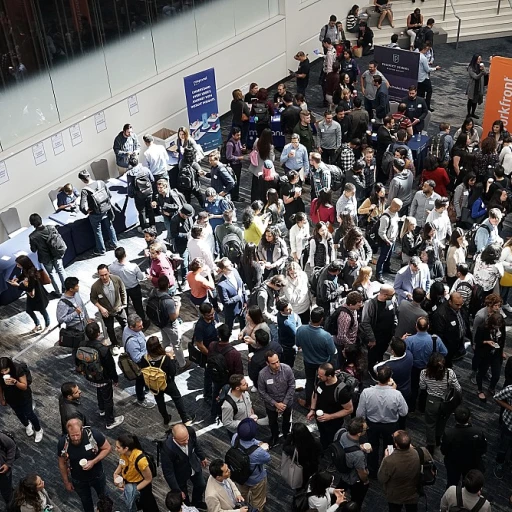
Defining lft and recruiting gaming
What Does LFT Mean in Gaming?
In the world of video gaming, especially in competitive scenes like League of Legends or other team-based video games, the term LFT stands for "Looking For Team." This is a common phrase used by gamers who want to join a group of people or an established team. You’ll often see posts in gaming communities or on Discord channels where a person will announce they are LFT, hoping to connect with teams seeking new players. The vast majority of these posts include details about the player’s main game, category, and sometimes a brief review of their experience or strategy preferences.
How Does Recruiting Work in Gaming?
Recruiting in gaming is a more structured process. Instead of individuals advertising themselves as LFT, organizations or groups of people—like esports teams or gaming companies—actively seek out and recruit players. This can involve posting a recruitment offer, reviewing applications, and sometimes running tryouts. The process is similar to traditional recruitment in other industries, but it’s tailored to the unique needs of the gaming community. Recruiters look for technical skills, but also for qualities like teamwork, communication, and adaptability, which are crucial in fast-paced video gaming environments.
Why Understanding the Difference Matters
For people interested in candidate sourcing within gaming, it’s important to know whether you’re dealing with LFT candidates or those responding to a recruitment offer. The approach to sourcing, evaluating, and engaging with these gamers can differ significantly. Understanding these definitions helps you craft better strategies for finding the right talent, whether you’re building a new team or helping a group of young gamers find their place in the entertainment software industry. For those exploring dynamic career paths in gaming or other enterprising jobs, this guide to enterprising jobs can offer additional insights.
Key differences between lft and recruiting gaming
How LFT and Recruiting Gaming Diverge in Practice
In the world of video gaming, the terms "LFT" (Looking For Team) and "recruiting gaming" often get mixed up, but they represent different approaches to connecting gamers and teams. Understanding these differences is key for anyone involved in sourcing candidates for gaming roles, whether in esports, casual groups, or professional teams.
- LFT (Looking For Team): This is when an individual gamer or a small group of people actively seeks to join an existing team. The focus is on the person or group advertising their availability, often posting in gaming community forums, Discord servers, or social media. The vast majority of LFT posts are from young gamers who want to play games like League of Legends or other popular video games. These posts typically include details about their main category, play style, time commitment, and sometimes a brief review of their gaming experience.
- Recruiting Gaming: In contrast, recruiting gaming is when a team or organization seeks to fill open spots by actively searching for new members. Here, the control is with the team, which may post recruitment offers, review applications, and conduct interviews or tryouts. This process is more structured and often involves evaluating a candidate’s fit with the team’s strategy, communication style, and long-term goals.
One of the key differences is the direction of the search. With LFT, the individual is reaching out to teams, while in recruiting gaming, the team is reaching out to individuals. This distinction affects the way groups of people interact, the privacy policy considerations, and even the legal rights reserved by each party. For example, teams recruiting players may need to comply with entertainment software privacy policies or policy legal requirements, especially if they are part of a larger gaming community or operate in regulated environments.
Another difference lies in the evaluation process. LFT posts are often informal and rely on quick responses, while recruiting gaming can involve a more thorough study of a candidate’s background, including their time spent playing games, their ability to work in teams, and their overall fit with the group’s culture. Teams may also use tools to report post issues or skip main content that doesn’t meet their criteria.
For more insights on how candidate evaluation works in sourcing, you can explore the true meaning of pre-screening in candidate sourcing.
Ultimately, both LFT and recruiting gaming play vital roles in connecting people who play video games, but they require different strategies and an understanding of the unique dynamics within the gaming community. Whether you’re looking to join Discord groups, recruit players for a specific game, or manage a team, knowing these differences will help you navigate the process more effectively.
Unique challenges in sourcing gaming candidates
Complexity of Gaming Roles and Candidate Expectations
Finding the right people for gaming teams is not as straightforward as it may seem. The gaming industry covers a vast category of roles, from professional players in esports to developers and community managers. Each group of candidates brings different expectations and skill sets. For example, the vast majority of young gamers looking to join a team may focus on popular titles like League of Legends or other video games, while organizations might need specific expertise or a proven strategy for competitive play. This gap between what teams need and what people play for fun can make sourcing challenging.
High Competition and Fast-Paced Environment
The demand for top gaming talent is intense. Many teams and companies are recruiting at the same time, often targeting the same pool of skilled gamers. The entertainment software sector moves quickly, and the best candidates may receive multiple recruitment offers in a short period. This means recruiters must act fast and have a clear understanding of what makes a person stand out in the gaming community. The need to review applications, control the recruitment process, and ensure privacy policy compliance adds another layer of complexity.
Assessing More Than Just Technical Skills
Unlike traditional job categories, gaming recruitment often requires evaluating candidates beyond their technical ability to play games. Soft skills, such as teamwork, communication, and adaptability, are crucial for success in group settings. Teams need to know if a candidate can fit into their existing structure and contribute to the main content of their strategy. Sometimes, a person may excel at playing a game but struggle to work within a team or follow a group’s policy legal requirements. This makes the evaluation process more nuanced and time-consuming.
Fragmented Communities and Sourcing Channels
Gaming communities are spread across various platforms, from Discord servers to forums and social media groups. Recruiters must know where to post opportunities and how to engage with different groups of people. For example, a recruitment offer posted in a general video gaming forum may not reach the right category of candidates, while a targeted message in a League of Legends group could attract the ideal person. Navigating these fragmented spaces, while respecting privacy policy and rights reserved guidelines, is a unique challenge in gaming recruitment.
Reference: Improving Candidate Sourcing Strategies
For a deeper look at how to transform your approach and overcome these challenges, consider exploring how employee experience consulting transforms candidate sourcing strategies. This resource provides practical insights into adapting your methods for the fast-evolving world of video gaming recruitment.
Effective sourcing strategies for gaming talent
Building a Sourcing Pipeline for Gaming Talent
Finding the right people to join gaming teams or groups is not just about posting a recruitment offer and waiting. The gaming industry is unique, with its own categories, communities, and expectations. To recruit players who truly fit, sourcing strategies must be tailored to how gamers play, interact, and communicate.
- Engage Where Gamers Gather: The vast majority of gamers spend time in online spaces like Discord servers, Reddit threads, and forums dedicated to specific video games or categories. Joining these communities and participating in discussions can help recruiters connect with potential candidates who are actively playing games and looking for new teams.
- Leverage In-Game Tools: Many video games, such as League of Legends, offer built-in features for finding groups of people or teams. Using these tools allows recruiters to reach people who are already engaged and interested in team-based play.
- Utilize Social Media and Streaming Platforms: Platforms like Twitch and YouTube are where young gamers and established teams showcase their skills. Reviewing streams or video content can give insight into a person's play style, communication skills, and fit for a group or team.
- Post Targeted Recruitment Offers: Instead of broad job boards, post in gaming-specific spaces where the main content is about playing games. This increases the chance of reaching people who are passionate about video gaming and looking for new opportunities.
- Host or Sponsor Gaming Events: Organizing tournaments or study sessions can attract gamers who are serious about improving and joining teams. These events also allow recruiters to observe how people play and interact in real time.
Respecting Privacy and Building Trust
When sourcing candidates in the gaming community, respecting privacy policy and legal rights is essential. Many gamers value their anonymity and control over personal data. Always be transparent about how information will be used and provide clear options to report post or skip main content if needed. This builds trust and encourages more people to engage with your recruitment efforts.
Adapting to the Fast Pace of Gaming
The gaming world moves quickly. Teams form and disband, new games rise in popularity, and players switch categories often. Effective sourcing means staying updated on trends, understanding what motivates gamers, and being ready to adapt your strategy. Whether you are looking for a white-hot esports prospect or a person who enjoys video gaming for entertainment software, flexibility is key to successful recruitment.
Evaluating candidate fit beyond technical skills
Looking Beyond the Scoreboard
When sourcing candidates for gaming teams or recruiting players for a group, it’s tempting to focus only on technical skills—like a person’s rank in League of Legends or their win rate in a specific category of video games. However, the vast majority of successful teams know that evaluating candidate fit goes much deeper. It’s about understanding how people play, communicate, and contribute to the team dynamic over time.
Key Qualities to Assess
- Communication: In gaming, especially in team-based video games, clear and respectful communication is essential. A young gamer who can control their emotions and provide constructive feedback helps maintain a positive group environment.
- Adaptability: Games and strategies evolve quickly. People who can study new metas, adapt to changes, and learn from post-game reviews are valuable assets.
- Teamwork: The ability to play games with others, support teammates, and prioritize group objectives over personal stats is crucial. Teams that recruit players who understand the importance of collaboration tend to perform better.
- Attitude: A person’s attitude during both wins and losses can impact the entire gaming community. Look for candidates who demonstrate resilience, positivity, and a willingness to improve.
- Time Commitment: Consistency is key. Whether it’s a casual group or a competitive team, understanding how much time a candidate can dedicate to playing games and participating in team activities is important for long-term success.
Practical Steps for Evaluating Fit
- Organize trial sessions or scrims to observe how candidates interact with the team in real game scenarios.
- Review past performance, but also consider feedback from previous groups people have played with.
- Encourage open discussions about expectations, privacy policy, and the group’s approach to entertainment software and video gaming.
- Use platforms like Discord to facilitate communication and gauge how well a person integrates with the existing team culture.
Ultimately, the best recruitment offer is one that considers both technical ability and the human side of gaming. By focusing on these broader qualities, recruiters and team leaders can build stronger, more cohesive teams that thrive in the competitive world of video games. For more insights on candidate sourcing in gaming, always check the main content and skip main distractions to focus on what truly matters: finding the right fit for your team.
Leveraging gaming communities for sourcing
Building Trust Within Gaming Communities
Connecting with the gaming community is essential for anyone aiming to recruit players or source top gaming talent. The vast majority of people play video games not just for entertainment, but also to be part of a group. These groups of people, whether in a Discord server, a League of Legends team, or a subreddit, form the backbone of the gaming world. To effectively reach young gamers and experienced players alike, recruiters need to respect the culture and privacy policy of each community.Engagement Strategies That Work
- Join Discord servers dedicated to specific games or categories. Participating in conversations and sharing relevant recruitment offers can help you connect with gamers who are actively playing games and looking for new teams.
- Post in forums and review posts in gaming communities. This helps you understand what people value in a team or group, and what motivates them to play video games competitively or casually.
- Respect privacy policies and community guidelines. Many gaming communities have strict rules about recruitment posts and direct outreach. Always check the policy legal section or ask moderators before sharing any recruitment offer.
- Leverage entertainment software platforms like Steam or official game forums to find people who play games in your target category. These platforms often have dedicated spaces for team recruitment and player search.
Understanding Community Dynamics
Every gaming community has its own culture and unwritten rules. For example, a group focused on strategy games may value study, control, and teamwork, while a video gaming community for action games might prioritize quick decision-making and individual skill. Take time to observe how people interact, what kind of posts get the most engagement, and how teams are formed. This will help you craft messages that resonate with the right audience.Evaluating Fit Through Community Involvement
Recruiters should look beyond technical skills and consider how a person interacts within the gaming community. Someone who actively participates, helps others, and demonstrates good sportsmanship can be a valuable addition to any team. Reviewing a candidate’s main content, such as their posts, reviews, or participation in group events, can provide insights into their fit for your team or organization.Best Practices for Sourcing in Gaming Communities
- Always be transparent about your intentions when reaching out to gamers.
- Use the appropriate channels for recruitment offers—never spam or ignore community guidelines.
- Report posts or behavior that violate community standards to maintain a positive environment.
- Respect the rights reserved by content creators and community leaders.
- Encourage open communication and feedback to build long-term relationships with gaming talent.













